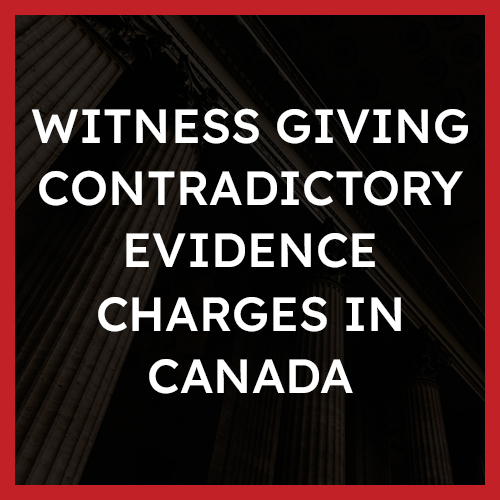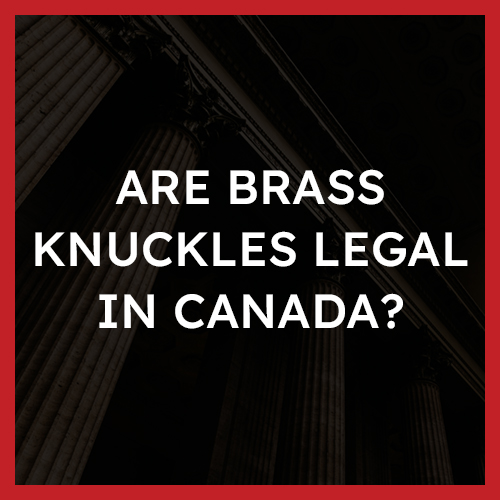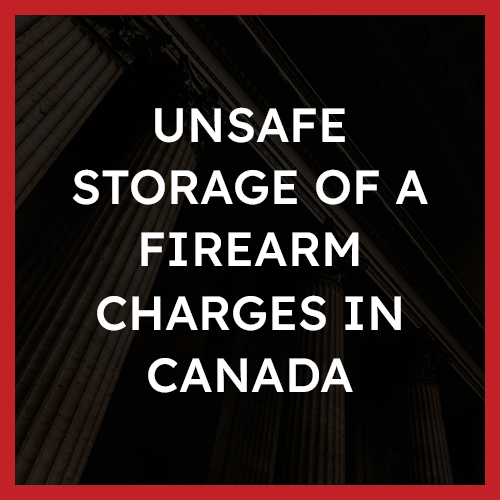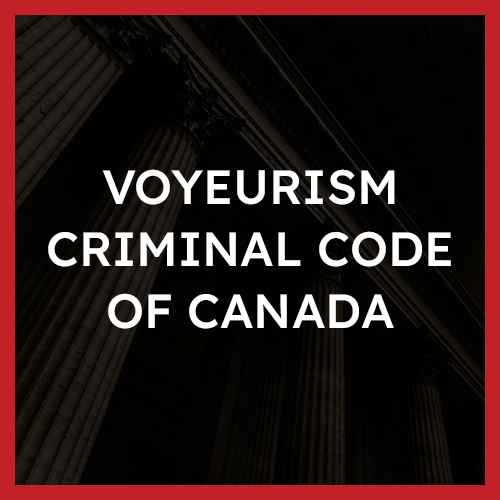Witness Giving Contradictory Evidence Laws in Canada Explained
What is a giving contradictory evidence charge?

A contradictory evidence charge occurs when a person, who is a witness in a judicial proceeding, gives evidence about something they know, and then in another court proceeding, gives evidence that is contrary to their previous evidence. For a person to be convicted of giving contradictory evidence, the court must be satisfied beyond a reasonable doubt that the person intended to mislead by providing conflicting evidence in the two proceedings.
Giving contradictory evidence is an indictable offence, which means it is a more serious type of criminal charge in Canada, and upon conviction, the perpetrator may face severe consequences. When an accused is prosecuted by indictment, there is a Defence election of court under s. 536(2) of the Criminal Code.
Examples
Some examples of a giving contradictory evidence charge may include the following:
- The accused testified that they didn’t see the suspect at the scene of the crime and in a different proceeding, testified they saw that person committing the crime they were previously tried for;
- The accused testified in a civil case saying they weren’t involved in a particular incident. Later, in a related criminal trial, they provide a different story; and
- The accused testified to one version of events in a family court hearing and gave a completely different version of events in a subsequent divorce proceeding.
Defences
The defences available to a giving contradictory evidence charge are entirely dependent on the facts of your case.
However, some defences to a giving contradictory evidence charge may include:
- The accused did not intend to mislead the court;
- The evidence the accused gave was not material to the proceeding;
- The accused made an honest mistake; and
- There is no proof that there was a previous court proceeding.
Punishment
A giving contradictory evidence charge is an indictable offence, which entails a maximum punishment as follows:
- Imprisonment for a term not exceeding 14 years.
There are no mandatory minimum penalties for this offence. A giving contradictory evidence charge can also entail severe consequences for current and future employment opportunities and immigration status.
Overview of the Offence
According to s. 136 of the Criminal Code:
Witness giving contradictory evidence
136(1) Every one who, being a witness in a judicial proceeding, gives evidence with respect to any matter of fact or knowledge and who subsequently, in a judicial proceeding, gives evidence that is contrary to his previous evidence is guilty of an indictable offence and liable to imprisonment for a term not exceeding fourteen years, whether or not the prior or later evidence or either is true, but no person shall be convicted under this section unless the court, judge or provincial court judge, as the case may be, is satisfied beyond a reasonable doubt that the accused, in giving the evidence in either of the judicial proceedings, intended to mislead.
Evidence in specific cases
(1.1) Evidence given under section 714.1, 714.2 or 714.3 or under subsection 46(2) of the Canada Evidence Act or evidence or a statement given under an order made under section 22.2 of the Mutual Legal Assistance in Criminal Matters Act is deemed to be evidence given by a witness in a judicial proceeding for the purposes of subsection (1).
Definition of evidence
(2) Notwithstanding the definition evidence in section 118, evidence, for the purposes of this section, does not include evidence that is not material.
Proof of former trial
(2.1) Where a person is charged with an offence under this section, a certificate specifying with reasonable particularity the proceeding in which that person is alleged to have given the evidence in respect of which the offence is charged, is evidence that it was given in a judicial proceeding, without proof of the signature or official character of the person by whom the certificate purports to be signed if it purports to be signed by the clerk of the court or other official having the custody of the record of that proceeding or by his lawful deputy.
Consent required
(3) No proceedings shall be instituted under this section without the consent of the Attorney General.
The Guilty Act (Actus Reus)
The actus reus for giving contradictory evidence charge under s. 136(1) is established by proof, beyond a reasonable doubt, of the following:
- The accused at a specified date and time, in the correct jurisdiction, was a witness in a judicial proceeding;
- Gave evidence in that judicial proceeding with respect to any matter of fact or knowledge; and
- The accused subsequently, in a judicial proceeding, gave evidence that was contrary to their previous evidence.
The Guilty Mind (Mens Rea)
The mens rea for giving contradictory evidence charge under s. 136(1) include proving, beyond a reasonable doubt, that:
- The accused in giving contradictory evidence, intended to mislead the court.
Defences
How to Beat a Giving Contradictory Evidence Charge
Every case is different. The availability and strength of any defence depend entirely on the specific facts of your case. The strength of any available defence rests on the evidence against you and the precise details of the allegations. However, the following are some common defences that may be used when fighting a giving contradictory evidence charge:
Factual innocence
A strong defence against a giving contradictory evidence charge is to maintain that you are factually innocent. If you can show that the facts and the evidence do not support that you were in a previous judicial proceeding, you did not give contradictory evidence, or that you did not give evidence that was material, then you may have a defence that you were factually innocent.
You did not intend to mislead the court
For this to be a defence for giving contradictory evidence, it must be proven that you did not intend to mislead the court with contradictory evidence. In such a defence, it can be argued that any inconsistencies in statements were not the result of a calculated effort to deceive but rather stemmed from factors such as confusion, misunderstanding, or a genuine belief in the accuracy of the information provided.
The contradictory evidence given was an honest mistake
It could be argued that human error, lapses in memory, or confusion contributed to the inconsistencies between the accused’s initial and subsequent testimonies. By presenting the inconsistencies as unintended and stemming from genuine errors rather than calculated deception, it may be established that the accused did not harbour any malicious intent to mislead.
Identity
Depending on the circumstances of your case, a possible defence to a giving contradictory evidence charge may be to raise an identity defence. In this case, for this defence to be raised successfully, you will have to prove that you were not the person who gave the alleged contradictory evidence in the prior judicial proceeding.
Any applicable Charter defences
The Charter sets out your rights and freedoms before and after your arrest. If the police fail to abide by these rights deliberately or inadvertently, it could aid in your defence. If any of your Charter rights have been violated before or after your arrest, you may be able to have some or all of the evidence that the Crown is relying on to secure a conviction excluded under s. 24(2) of the Charter.
Punishments
The Criminal Code provides for a possible maximum term of imprisonment of no more than 14 years for those convicted of a giving contradictory evidence charge.
Persons found guilty of giving contradictory evidence are eligible for sentencing entailing a suspended sentence, stand-alone fine, a fine and probation, custody, custody with a fine or probation or a conditional sentence order.
Frequently Asked Questions
Can you go to jail for witness giving contradictory evidence?
Yes. If a witness provides testimony on a matter of fact or knowledge in one judicial proceeding and later gives conflicting evidence in another proceeding, they may be charged with an indictable offence for giving contradictory evidence. The potential penalty includes imprisonment for up to fourteen years. However, it’s important to note that the court must be convinced beyond a reasonable doubt that the witness intended to mislead. Defences could include honest mistakes or challenging the prosecution’s ability to prove the intent to mislead. Each case is unique, and legal advice is crucial to understanding the specific circumstances and potential outcomes.
What is the maximum penalty for witness giving contradictory evidence?
The maximum penalty for a witness giving contradictory evidence is imprisonment for a term not exceeding fourteen years. This legal provision applies when a witness, who has testified in one judicial proceeding, provides conflicting testimony in a subsequent proceeding. It’s essential to understand that the severity of the penalty is contingent upon the court being convinced beyond a reasonable doubt that the witness intended to mislead.
Is witness giving contradictory evidence an indictable offence?
Yes, a witness giving contradictory evidence is considered an indictable offence. If a witness provides testimony in one judicial proceeding and later gives contradictory evidence in another, they can be charged with an indictable offence. The potential consequences of this offence include imprisonment for a term not exceeding fourteen years.
Published Decisions
R v Desnomie, 2005 SKCA 148 (CanLII)
In this case, the accused gave contradictory during a trial on second-degree murder that contradicted evidence that they gave during the preliminary hearing. The accused was a former friend of the person being tried for second-degree murder and was charged with giving contradictory evidence. She was given an 18-month conditional sentence, which included 6 months of electronic monitoring. The Crown appealed this sentence.
At the Saskatchewan Court of Appeal, the Crown was partially successful and the accused’s sentence was increased to two years less one day.
You can read the full decision here.
R v Bermudez, 2013 ONCJ 113 (CanLII)
The accused pled guilty to eight counts of giving contradictory evidence. He gave contradictory evidence in proceedings relating to his former common-law spouse’s second-degree murder charge regarding the death of her two-year-old child. The contradictions resulted in delays in the proceedings and were motivated by the desire to assist his former partner. It was also found that the accused had been abusing substances at the time.
You can read the full decision here.
R v King, 2019 ONSC 2166 (CanLII)
In this case, King testified as a jailhouse informant in a first-degree murder case. During the investigation and at the preliminary inquiry, he falsely claimed that he had never been a jailhouse informant in the past and he had never previously testified when, in fact, he had acted as a jailhouse informant on multiple occasions in the past.
King was sentenced to two years in prison.
You can read the full decision here.
Contact Us
If you have been charged with a criminal offence, visit our location pages to contact our team.
About The Author
Ask A Question
We endeavor to respond to questions within 24 hours. If your matter is urgent, please call our office or submit a request for a free consultation.







